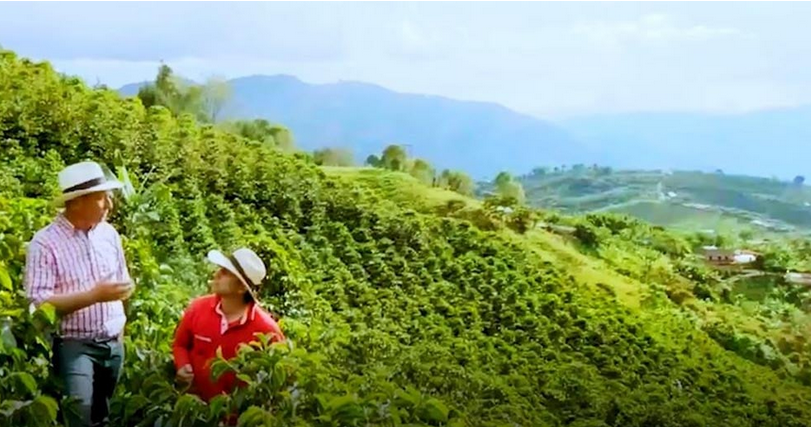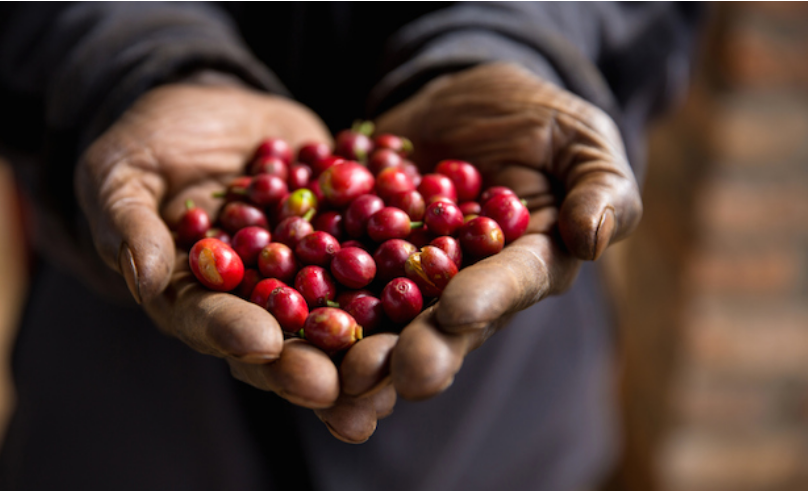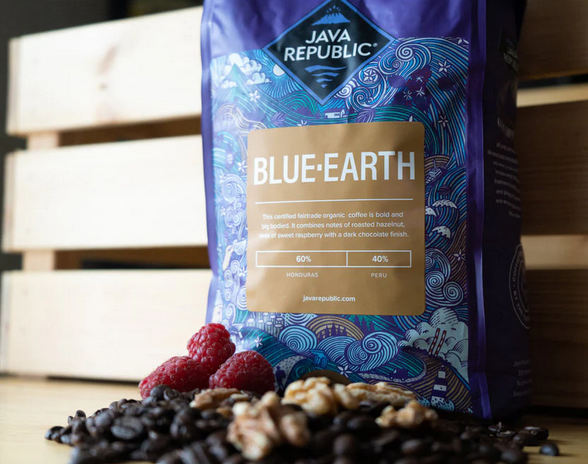Sustainable coffee bean sourcing is a commitment to ethical practices and environmental stewardship. The approach involves sourcing coffee beans in a way that is environmentally friendly, economically viable, and socially responsible.
The importance of sustainable sourcing in the coffee industry cannot be overstated. It ensures the long-term health of coffee farming communities and ecosystems, while also providing consumers with high-quality, ethically produced coffee. As the demand for coffee continues to grow, the need for sustainable practices becomes increasingly crucial to mitigate negative impacts on the planet and its inhabitants.
In this mycoffeebeanz.com article, we will look at sustainability challenges, the principles of sustainable coffee sourcing, the role of the consumer in promoting sustainable coffee and more.
Read on to discover all about sustainable coffee bean sourcing.

The Global Coffee Market and Sustainability Challenges
The coffee industry is a global powerhouse, deeply integrated into the economies and cultures of many countries. However, its vast scale comes with significant environmental and social challenges.
Coffee production often leads to deforestation, water pollution, and soil degradation, adversely affecting biodiversity and contributing to climate change. Socially, coffee farmers frequently face issues like unfair wages, labor exploitation, and lack of access to resources.
Key sustainability challenges in coffee bean sourcing include ensuring fair compensation for farmers, promoting environmentally friendly farming practices, and maintaining the quality of coffee while minimizing its ecological footprint. Organizations like Fair Trade USA play a crucial role in addressing these challenges by certifying products that meet strict standards of ethical production and trade.
The Principles of Sustainable Coffee Sourcing
Sustainable coffee sourcing is grounded in several key principles:
- Fair Trade Practices: These practices ensure that coffee farmers receive fair compensation for their labor, contributing to economic sustainability in coffee-growing communities. Fair Trade also supports community development and empowers farmers with greater control over their production.
- Organic and Shade-Grown Coffee: Growing coffee organically without harmful pesticides and in shaded areas helps preserve natural habitats, supports biodiversity, and reduces the carbon footprint of coffee production.
- Direct Trade: This involves coffee roasters and buyers forming direct relationships with farmers, ensuring ethical sourcing and high-quality beans. Direct trade often results in better prices for farmers and more transparency for consumers.

Case Studies: Sustainable Coffee Brands
Several coffee brands have made significant strides in sustainable sourcing:
- Larry’s Coffee: Known for its commitment to organic, fair trade coffee, Larry’s Coffee works directly with farmers and focuses on environmental sustainability in its operations. Larry’s is actually the founding member of Cooperative Coffees the group of coffee roasters that import directly from farmers.
- Ethical Bean: This brand is a champion of fair trade and organic coffee. Ethical Bean ensures that every step of their coffee production is environmentally and socially responsible.
- Café Mam: Café Mam sources its beans from cooperatives that practice organic and shade-grown farming, emphasizing environmental preservation and social equity.
These brands not only provide high-quality coffee but also contribute positively to the communities and environments where their coffee is grown. They serve as exemplary models in the industry, demonstrating that sustainable coffee bean sourcing is both feasible and beneficial.
A useful visual resource explaining all about sustainable coffee bean sourcing
Strategies for Sustainable Coffee Sourcing
Implementing sustainable practices in coffee sourcing is crucial for the health of our planet and the well-being of those involved in the coffee industry. Key strategies include:
- Building Relationships with Farmers: Establishing direct and long-term relationships with coffee growers ensures a fair and stable income for them and high-quality beans for consumers. This approach fosters trust and mutual respect, leading to more sustainable farming practices.
- Investing in Sustainable Farming Practices: Encouraging and supporting farmers to adopt sustainable practices such as organic farming, shade-grown coffee, and water conservation techniques is vital. This investment not only improves the quality of the coffee but also ensures the longevity and health of coffee farming lands.
- Transparency and Traceability in the Supply Chain: Implementing transparent supply chains helps consumers understand where their coffee comes from and the conditions under which it was produced. Traceability is key to ensuring that sustainable practices are followed throughout the entire process, from farm to cup. Organizations like the Rainforest Alliance work towards making supply chains more transparent and sustainable.
The Consumers Role in Promoting Sustainable Coffee
Consumers have a powerful role in promoting sustainable coffee which is evident in two key ways:
- Influencing Industry Practices: Consumer demand for sustainable products can drive significant changes in industry practices. By choosing sustainable coffee, consumers can encourage more companies to adopt ethical sourcing and production methods.
- Identifying and Choosing Sustainable Coffee Products: Consumers can look for certifications like Fair Trade, Organic, or Rainforest Alliance to ensure they are purchasing sustainably sourced coffee to brew at home. Consumers can also educate themselves about the origins of coffee and the conditions under which it was produced can also guide more informed purchasing decisions.

The Future of Sustainable Coffee Sourcing
The future of sustainable coffee sourcing is promising, with several emerging trends and technologies:
- Emerging Trends: There is a growing trend towards more sustainable and ethical practices in the coffee industry. This includes increased use of renewable energy in coffee production, water conservation techniques, and innovative farming practices that enhance biodiversity.
- The role of Certifications and Industry Standards: Certifications like Fair Trade, Organic, and Rainforest Alliance will continue to play a crucial role in promoting sustainable practices. These standards not only help consumers make informed choices but also encourage farmers and companies to adopt more sustainable practices.
FAQs
Why is sustainable coffee often more expensive?
Sustainable coffee typically costs more due to the following reasons:
- The higher costs of ethical labor practices such as fairer wages for workers
- Sustainable coffee often comes under the category of speciality coffee meaning it is often produced in micro-climates and requires a higher degree of care during growing, harvesting and processing
- There is added cost to maintain certification such as Fair Trade which are key to marketing the coffee a sustainable
- Sustainable coffee farms are typically smaller in scale than industrial coffee plantations meaning higher per unit costs
How can I tell if coffee is sustainably sourced?
Look for certifications like Fair Trade, Organic, or Rainforest Alliance on the packaging. These labels indicate that the coffee meets specific standards of sustainable production.
Other signs include eco-friendly packaging such as recyclable or compostable packaging; and also information about the supply chain including how a brand sources their beans and their relationship with coffee growers.

Taylor – Barista and Product Tester at MyCoffeeBeanz.com
Taylor is a professional barista and our product tester here at MyCoffeeBeanz.com. She loves experimenting with different coffee brewing methods but her real passion within the coffee industry is helping promote sustainability and eco-friendliness wherever she can. Read more about Taylor her
